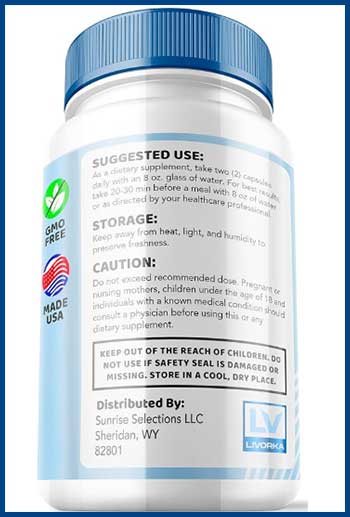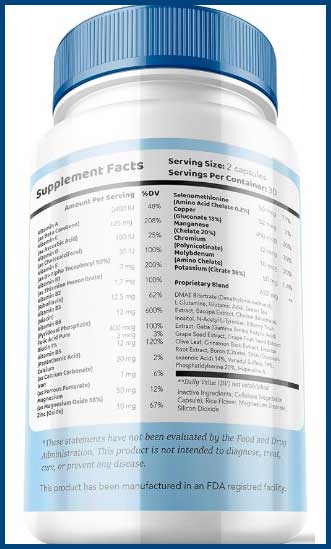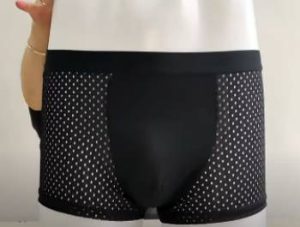I understand the longing for relief when your ears won’t stop buzzing. I’ve been there too, scouring the internet for answers and stumbling upon supplements that promise the world.
Quietum Plus might catch your eye with lofty assurances about soothing that lingering ringing and boosting ear health. But is it truly the product you need? I’ve put a lot of thought into this, considered user experiences—both good and bad—and tried it myself.
Let me share my honest, no-holds-barred perspective on Quietum Plus, so you can decide for yourself whether it’s a worthwhile investment or just another letdown.
My Story With Ear Buzzing

I’ve dealt with on-and-off ringing in my ears for what feels like forever.
Sometimes it’s a soft, barely noticeable hum; other times, it’s this aggravating, persistent noise that refuses to fade into the background.
It can keep me up at night, reduce my focus during the day, and affect my overall mood.
If you know what that’s like, you get how desperate one can become to find a solution.
In my pursuit of relief, I started exploring everything from home remedies to sophisticated sound therapy devices.
Somewhere along the way, I came across Quietum Plus.
The marketing was polished, the promises were big, and let’s face it: If you see enough rave comments, you might feel compelled to give something a try.
So, I decided to do just that.
About Quietum Plus
From what I gathered, Quietum Plus is a dietary supplement that markets itself as an ally for healthy hearing. It’s often advertised as a natural blend of vitamins, minerals, and herbal extracts.
The creators claim that these ingredients work in tandem to boost circulation within the ear, helping to ease that pesky buzzing or ringing.
Some of the components may include fenugreek, black cohosh, yam, and various vitamins. The idea is that these have properties that can support the auditory system.
But keep in mind, these sorts of ingredients also appear in other supplements for entirely different purposes—like hormonal balance or digestion. That might make some of us question whether they’re specifically effective for ear issues or if it’s just generic marketing language.
My Personal Experience With Quietum Plus
When my order arrived, I felt hopeful. The supplement came in capsules that were easy enough to swallow. I followed the instructions, taking them consistently, and waited for that magical improvement I’d been led to expect.
For the first few days, nothing changed. I still had that faint but noticeable hum in my ears.
By the second week, I wondered if maybe it was helping a tiny bit. But looking back, I think that might have been wishful thinking.
Around that time, I began feeling occasional lightheadedness in the morning—something I rarely experienced prior. I couldn’t be entirely sure it was Quietum Plus causing it, but the timing was suspicious.
After a few weeks of use, I realized the ringing wasn’t getting better. The dizziness seemed to linger sporadically, so I decided to stop taking the supplement.
Within days of discontinuation, the dizziness subsided. Perhaps it was unrelated, but the correlation was too strong to ignore. Since that personal trial, I’ve been wary about recommending this product to others.
What People Are Saying About Quietum Plus?
In an attempt to see if others shared my experience, I scanned reviews on various e-commerce sites. Interestingly, there’s a mix of praise and discontent. Yet, the negative commentary is especially striking, with multiple people reporting:
- No noticeable reduction in ear ringing.
- Dizziness, lightheadedness, or a fullness in the head.
- Difficulty obtaining a refund after the official return window closed.
- Accusations that the product is a placebo with minuscule doses of useful ingredients.
Why It’s Tough to Recommend?

You may come across some satisfied customers who swear it worked wonders, but from what I’ve seen—including my own experience—the less-than-stellar reviews outweigh the success stories.
I’m not comfortable telling friends, “You’ve got to try this!” when I’ve had concerning side effects and minimal gains.
Moreover, there’s an issue with the money-back guarantee. Several users assumed they could get a full refund if it didn’t work.
But by the time they realized it wasn’t helping, the standard one-month window had passed.
This mismatch between marketing hype and what’s possible in practice adds to the negativity surrounding the product.
Pros And Cons of Quietum Plus
Pros
- Natural Ingredients: Some of the herbs and vitamins may be appealing if you prefer plant-based formulas.
- Easy to Take: Capsules fit well into a daily routine.
- Some Positive Anecdotes: A fraction of users say they experienced less ringing.
Cons
- Mixed Results: Many folks detect zero improvement, leading to skepticism.
- Potential Side Effects: Reported dizziness, headaches, or a sensation of fullness in the head.
- Return Policy Issues: Multiple users discovered they couldn’t claim a refund after trying it for the recommended 60 days.
- Low Ingredient Concentrations: Some question whether the amounts are enough to be beneficial.
- Possibly Worsening Symptoms: At least one person mentioned their ringing became clearer—exactly the opposite of what we’d hope for.
How Quietum Plus Compares To Other Brands
- Other Tinnitus Supplements
Plenty of other supplements flood the market claiming to ease tinnitus. They often include some combination of vitamins B12, magnesium, zinc, or herbal extracts like ginkgo biloba.
I’ve tried a few, though none were game-changers for me. At times, you’ll encounter marketing that mirrors Quietum Plus: grand promises, questionable efficacy.
On the plus side, some brands are more forthcoming with ingredient lists, and a few even offer more flexible return policies. That transparency can make a big difference in how users perceive a product.
- Prescription Medications
While no prescription drug outright cures tinnitus, certain medications are sometimes prescribed to manage stress, anxiety, or insomnia related to the condition. Prescription options come with their own set of side effects, but they often include professional oversight from a doctor or specialist.
Some people prefer that, feeling more secure when a medical professional is involved rather than relying on random supplements sold online.
- Sound Therapy and White Noise Machines
Unlike pills or capsules, sound therapy devices produce neutral background noise designed to mask or overshadow the ringing. Many people with persistent tinnitus find real relief from these devices, especially at bedtime. While it doesn’t eliminate the tinnitus, it can make it less intrusive in daily life.
Tips For Better Ear Health

- Regular Ear Cleaning: Excess earwax is sometimes a culprit when it comes to hearing difficulties or muffled sounds. Occasionally flushing the ear gently with warm water or using an over-the-counter ear cleaning solution can help. However, avoid pushing cotton swabs deep into the canal, which can push wax further in rather than removing it.
- Noise Protection: Whether it’s a concert or a workplace with heavy machinery, continuous exposure to loud noise can exacerbate hearing problems. I always keep a pair of earplugs handy if I’m going somewhere that might be loud. It doesn’t look glamorous, but it’s a small price to pay for protecting the ears.
- Volume Control: Listening to music at high volumes, especially on headphones, can be damaging over time. A good rule of thumb: If someone next to you can hear what you’re listening to through your headphones, it’s probably too loud. Turning down the volume helps preserve long-term hearing health.
- Stress Management: Stress can exacerbate tinnitus. When I’m anxious or overwhelmed, that buzzing gets more distracting. Simple measures like breathing exercises, stretching, or mindfulness can help regulate stress and reduce how aware you are of the ringing.
- Stay Hydrated and Eat Well: Proper hydration supports overall health, including circulation to the ears. A balanced diet packed with vitamins, minerals, and antioxidants can also contribute to a healthier auditory system. There’s no single food that cures tinnitus, but overall wellness can make symptoms less bothersome.
- Regular Check-Ups: If you notice new or worsening ear issues, it’s wise to consult a healthcare professional. Sometimes, a simple ear exam reveals that a blockage or infection is the real culprit. In other cases, an underlying condition might require a specialist’s approach. Supplements alone aren’t always the answer.
Also Read: Is Earrck Hearing Aids Worth It?
Why I’m Not Recommending Quietum Plus?
With so many negative anecdotes, I don’t feel comfortable giving Quietum Plus a glowing endorsement. Yes, some people genuinely believe it helped them, but there’s a long list of reviewers who saw no improvement or even experienced adverse effects.
Personally, my mild dizziness and lack of substantial progress were enough to make me quit.
I also dislike how the brand pushes a “money-back guarantee” that doesn’t align well with the time frame needed to gauge results. If a seller advises using a product for 60 days, they should honor refunds during that entire period.
Otherwise, it feels misleading.
Ingredients of Quietum Plus
Quietum Plus mentions ingredients like fenugreek and yam, which many associate with hormone support. Black cohosh is often discussed in relation to menopausal symptom relief. While these can be valuable in certain contexts, tying them specifically to ear health is questionable.
Yes, vitamins like B6 or B12 could potentially support nerve function if someone is deficient, but do these small doses move the needle enough to reduce tinnitus? Many users say “no,” and I’m inclined to agree based on my experience.
The problem with supplements is that “natural” doesn’t always mean “effective.” And it certainly doesn’t guarantee it’ll be effective for everyone. Some marketing materials emphasize circulation and inflammation reduction, but they rarely present data from large, randomized studies.
Without that, it’s hard to separate hype from fact.
Addressing the Placebo Factor
Some individuals claim a slight improvement early on, then plateau. That could be the placebo effect at work—believing a product will help can briefly alter one’s perception of symptoms.
Once reality sets in and the novelty wears off, the results fade.
That doesn’t necessarily mean the product is fraudulent, but it suggests it might not be universally reliable.
Also Read: Is Similasan Ear Drops Worth It?
Evaluating Other Paths
- Cognitive Behavioral Therapy (CBT): CBT can help reframe how you think about the ringing, diminishing its emotional impact. While it doesn’t remove the sound, it may make coping easier. I’ve found mindfulness and therapy techniques beneficial in reducing the distress factor.
- Tinnitus Retraining Therapy (TRT): This approach pairs sound therapy with counseling, gradually teaching the brain to tune out the tinnitus signal. It’s a more structured program and can be time-consuming, but many find it effective over the long haul.
- Physical Therapies: Sometimes neck or jaw issues (like TMJ) can worsen tinnitus. Physical therapy or chiropractic adjustments might help if there’s a mechanical component contributing to the noise. While not universally applicable, it’s worth exploring if you suspect a link.
Reflecting on Why People May Feel Disappointed
When a product sounds too good to be true and claims to reduce or cure tinnitus, folks battling relentless ringing in their ears will naturally be drawn in. But if it falls short, disappointment can turn into resentment, especially if you’re left holding a bottle you can’t return.
In some ways, the makers of Quietum Plus set the bar high with their promises. Perhaps if they’d tempered expectations, provided a clearer breakdown of how the ingredients work, and offered a fully backed 60-day return policy, the reviews might be less harsh.
As it stands, it feels like a mismatch between marketing and real-world outcomes.
Expert Opinions On Tinnitus Supplements
Most medical professionals acknowledge there’s no singular magic bullet for tinnitus. Treatments often revolve around coping strategies, sound masking, and investigating underlying factors like hearing loss or cardiovascular issues.
Supplements sometimes offer a small benefit if you’re nutrient-deficient, but there’s usually no across-the-board guarantee.
This perspective from the medical community underscores why a product claiming it can dramatically reduce ringing for almost anyone should be met with caution. Often, it’s more productive to look for well-rounded approaches that consider overall ear health.
Balancing Hope With Reality
I understand the frustration. You see a product that claims to help, you read a couple of glowing reviews, and you think, “Why not me?” Yet, managing expectations can prevent heartbreak. If you do decide to try Quietum Plus (or something similar), just keep in mind it might not do much.
And if you experience side effects, stop immediately—your health is more important than recouping the cost of a supplement.
Some people get upset or feel cheated because they wanted so badly to believe that Quietum Plus would quiet their tinnitus. That emotional angle can be intense when you’re dealing with persistent ear ringing that disrupts your life.
Also Read: Is Luhaka Tinnitus Relief Worth It?
The Return Policy Dilemma
One recurring complaint is that users only realize the product is ineffective after a month or two of consistent use—exactly what the manufacturer recommends.
By the time they see no improvement, they can’t return it. If you’re buying from Amazon, the standard 30-day return window might not match up with the 60-day suggested trial. This leaves consumers feeling duped.
The product’s promotional materials sometimes mention a money-back guarantee, but that guarantee might not apply if you don’t buy directly from the official site. Even then, it’s crucial to read the fine print. In my view, that alone is enough reason to be cautious.
Is There Any Scenario Where I’d Suggest Trying It?
The only scenario might be if someone had thoroughly researched and accepted that it might not work, but wanted to experiment with the herbal and vitamin combination for personal reasons.
Even then, I’d advise shopping carefully to ensure a valid return policy. But would I personally recommend it to someone looking for tinnitus relief? No.
Keeping Up With My Ear Health
After my trial with Quietum Plus, I shifted my focus back to some basics: wearing earplugs in noisy spaces, limiting headphone volumes, and practicing relaxation techniques when stress ramps up.
While the ringing is still part of my life, I feel more in control than when I was pinning my hopes on a single supplement.
I also explored other supportive strategies, like guided meditation and progressive muscle relaxation, which help me worry less about the buzzing. When it’s less at the forefront of my mind, it becomes more manageable.
Wrapping Up
If you’re tempted to give Quietum Plus a try, at least you’re now armed with a candid perspective. Though it claims to help with ear health and reduce ringing, I’m not convinced it delivers on those promises.
Between my own experience, numerous negative reviews, and a questionable refund policy, I can’t recommend it. That said, the choice is ultimately yours. If you do proceed, keep expectations realistic and pay attention to how you feel.
With tinnitus, there are alternative paths—professional advice, sound therapies, or lifestyle tweaks—that may offer more reliable support than a single supplement.



